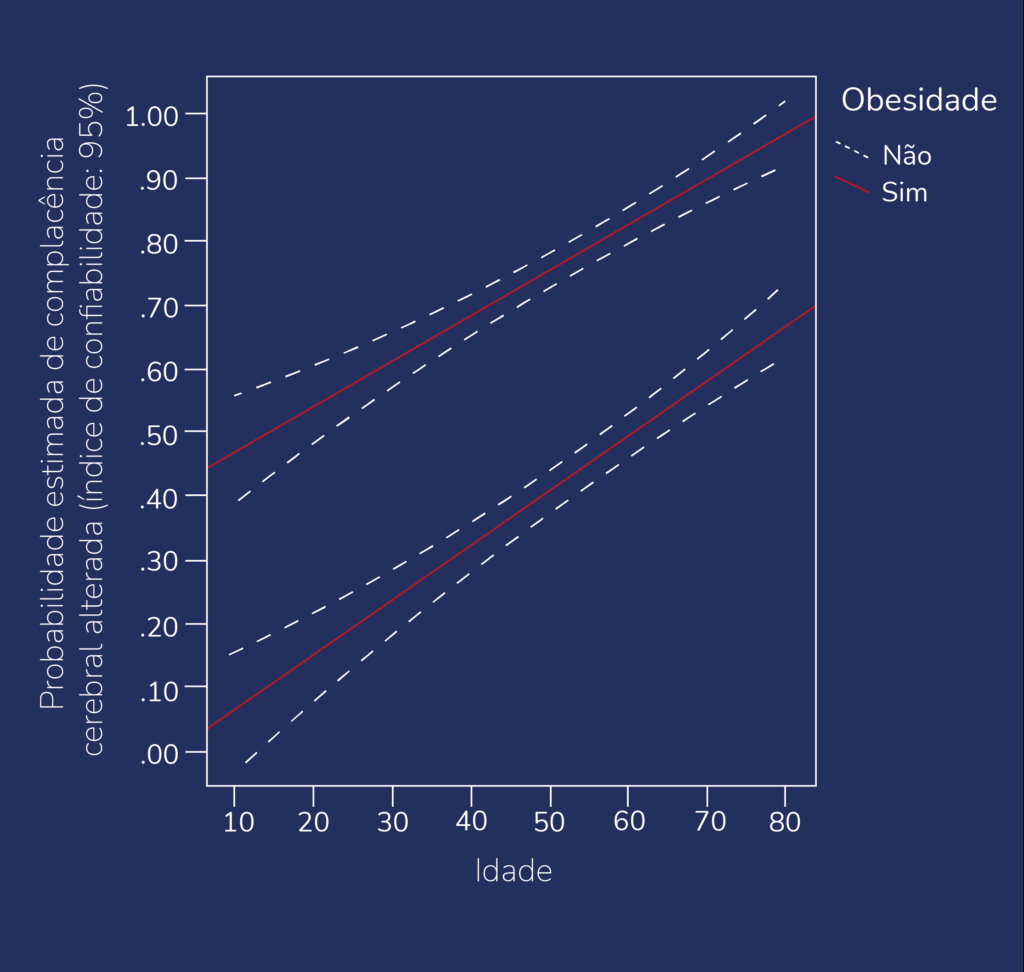
Conducted by a team from USP based on non-invasive monitoring, the research also linked aging with an increased risk of compromised compliance
A pilot study carried out at the Hospital das Clínicas of the University of São Paulo (USP) in patients with Covid-19 identified a prevalence of compromised intracranial compliance in obese patients compared to non-obese patients. The research observed 50 consecutively admitted patients in six ICUs of the hospital between May and June 2020. Among them, 23 had different degrees of obesity, one of the main risk factors for worsening in cases of Covid-19.
As pointed out by the study, the correlation between obesity and intracranial hypertension was already known in the field, exemplified by idiopathic intracranial hypertension, also known as pseudotumor cerebri, of which between 90% and 95% of patients are obese. The causes have been attributed to several factors linked to obesity, such as disturbances in the circulation of cerebrospinal fluid, compression of organs in the chest and abdomen, and even sleep apnea.

“Poor blood oxygenation during sleep, due to hypoventilation, also causes a circulatory disorder that can cause cerebral blood volume to be larger than usual: this is also an indirect mechanism thought to be related to increased blood pressure. intracranial pressure in obesity,” says Sérgio Brasil, a postdoctoral researcher at the HC/USP neurosurgery division who led the research.
The cases were followed by transcranial Doppler to analyze encephalic hemodynamics, the dynamics of blood flow in the brain, and by a non-invasive sensor to monitor the pulse shape of the intracranial pressure (ICP), which allows to characterize the intracranial compliance, the ability of the skull to regulate its internal pressure. Two measurements of both factors were performed: the first during the first three days after intubation and the second also within 72 hours after the removal of mechanical ventilation or tracheostomy.
The survey identified that 78% (18) of obese patients had compromised intracranial compliance, against 48% (13) of non-obese patients. 69% of obese people died or were unable to switch from mechanical ventilation to spontaneous ventilation, against 44% of non-obese people. Several changes in cerebral circulation were observed, these being together with changes in intracranial compliance associated with more severe cases of Covid-19.

It was also identified that older patients were also at higher risk of compromised compliance. As Sérgio Brasil points out, “older patients with obesity had a greater chance of complacency disorders, which also strengthens our suspicion that in advanced age there is also greater difficulty in the transit of CSF, the cerebrospinal fluid.” The article “Obesity and its implications on cerebral circulation and intracranial compliance in severe COVID-19”, which presents the results of the investigation, was published on May 20, 2021 in the journal Obesity Science and Practice and can be accessed at DOI: 10.1002/osp4.534.





